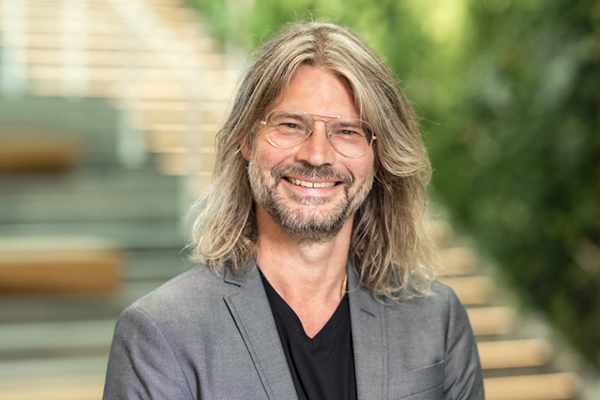What do you do as Director of ENLIGHT?
“It’s a central role in which I represent all the disciplinary domains in the ENLIGHT consortium. I take part in the Directors’ Meeting, which is responsible for deliveries in the ENLIGHT project. In this role, I also follow the University’s internal project activities near at hand, while also working closely at times with the Vice-Chancellor and Deputy Vice-Chancellor on various issues. Otherwise the organisation is the same as before.”
Previously an official in the administration was Director of ENLIGHT but now you have been appointed. Why is that?
“Erika Dabhilkar, the previous director, did a fantastic job, but when she left the University a need was perceived to have a person chosen by the academic body in this part of the ENLIGHT project management. Quite simply, there are advantages to having someone from the academic organisation who can continuously support and follow the project and negotiate with the other partners in the consortium.”
Is this an attempt to address the fact that ENLIGHT is a top-down initiative and does not stem directly from the needs of the academic organisation?
“I have been a member of the University’s steering group since ENLIGHT started, representing the Disciplinary Domain of Humanities and Social Sciences. The steering group has discussed in depth whether ENLIGHT is the right way to go for Uppsala University. The European Commission’s idea in launching the European university networks of which ENLIGHT is one is to generate new models for systemic change together with higher education institutions throughout Europe. Even if ENLIGHT is a top-down project, it offers those of us in the academic organisation opportunities to develop things that we ourselves want to improve, such as European mobility. Previously, my role in the steering group was sometimes that of the sceptic, I pointed out for example that times would come when we would pass certain points of no return. I believe we passed one such point in 2022 and that consequently a new attitude is now needed from the academic organisation, regardless of what people thought to begin with.
“It is now clear to me that numerous pleasing things have emerged in the ENLIGHT project, things that those of us in the academic organisation have failed to see or fully appreciate. What previously seemed threatening now appears in a different light. However, this message does not reach everyone affected. For this reason, I am now going to do what I can to get the whole University on board.”
What is required for ENLIGHT to reach out and become an important part of the University’s operational development?
“I believe the essential requirement is that vice-rectors, deans and heads of department see it as important part of the University’s development. It takes a lot to induce a member of the University’s teaching staff to pay any attention to something new when they don’t know what use it is or why it’s there. What’s required is that the academic leaders, from heads of department upward, learn more about this, show commitment and believe that ENLIGHT is something we can use positively and develop in a direction that is good for the University.”
The project ends in October 2023. What will happen after that?
“At the end of January, we sent in an application to become a regular EU network. We expect to be approved and to be able to deepen and expand our activities.”
Does the application for an extension specify any particular direction?
“It will basically be more of the same thing, but with structural development and a substantially increased budget. We will continue with the previous focus areas, such as equity and health, but are also adding a new area, culture and creativity. The EU wants us to highlight values that are key to the European identity, such as the rule of law and democracy. In its application, the ENLIGHT consortium responds to this wish and to other issues by a broad emphasis on culture and creativity.”
